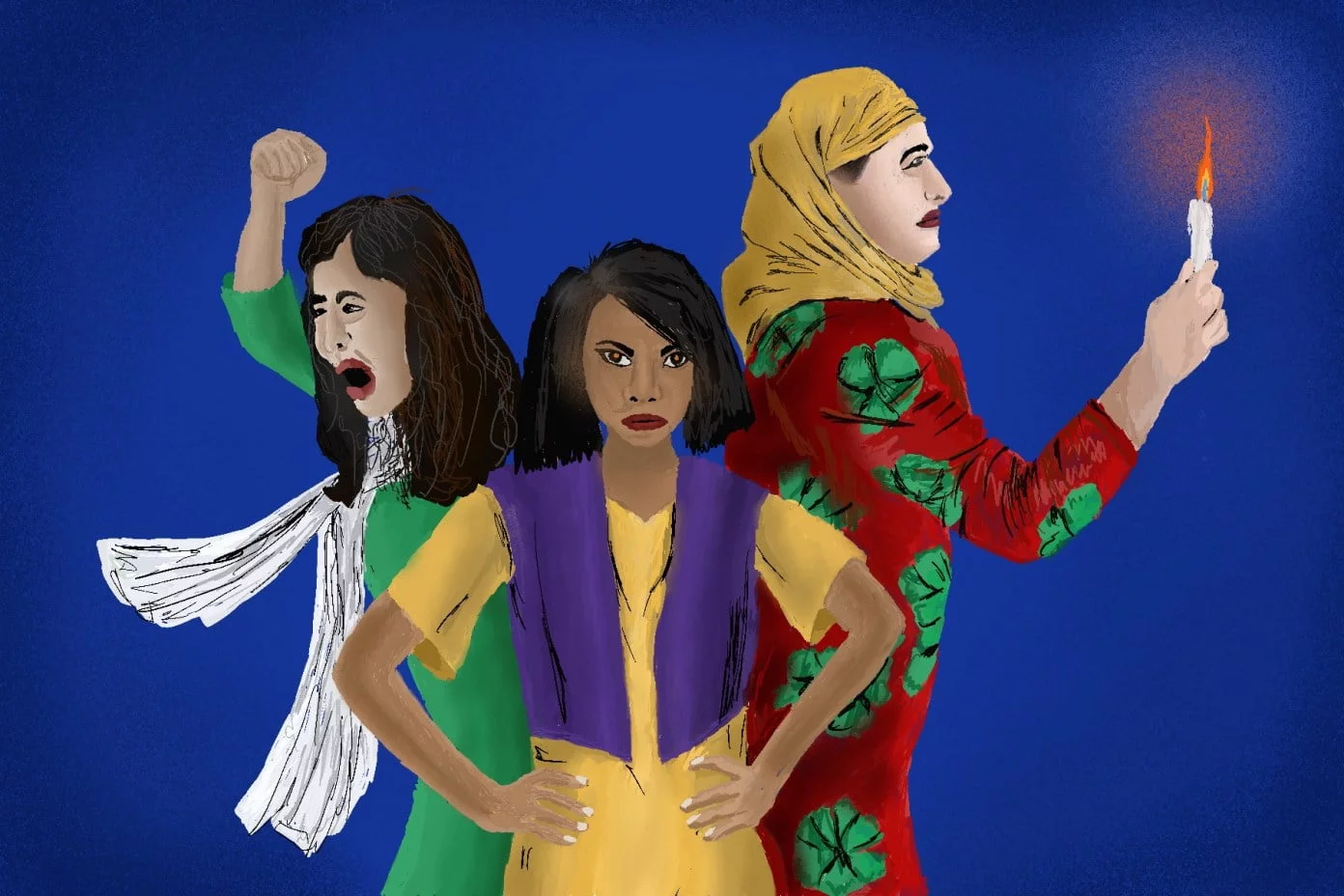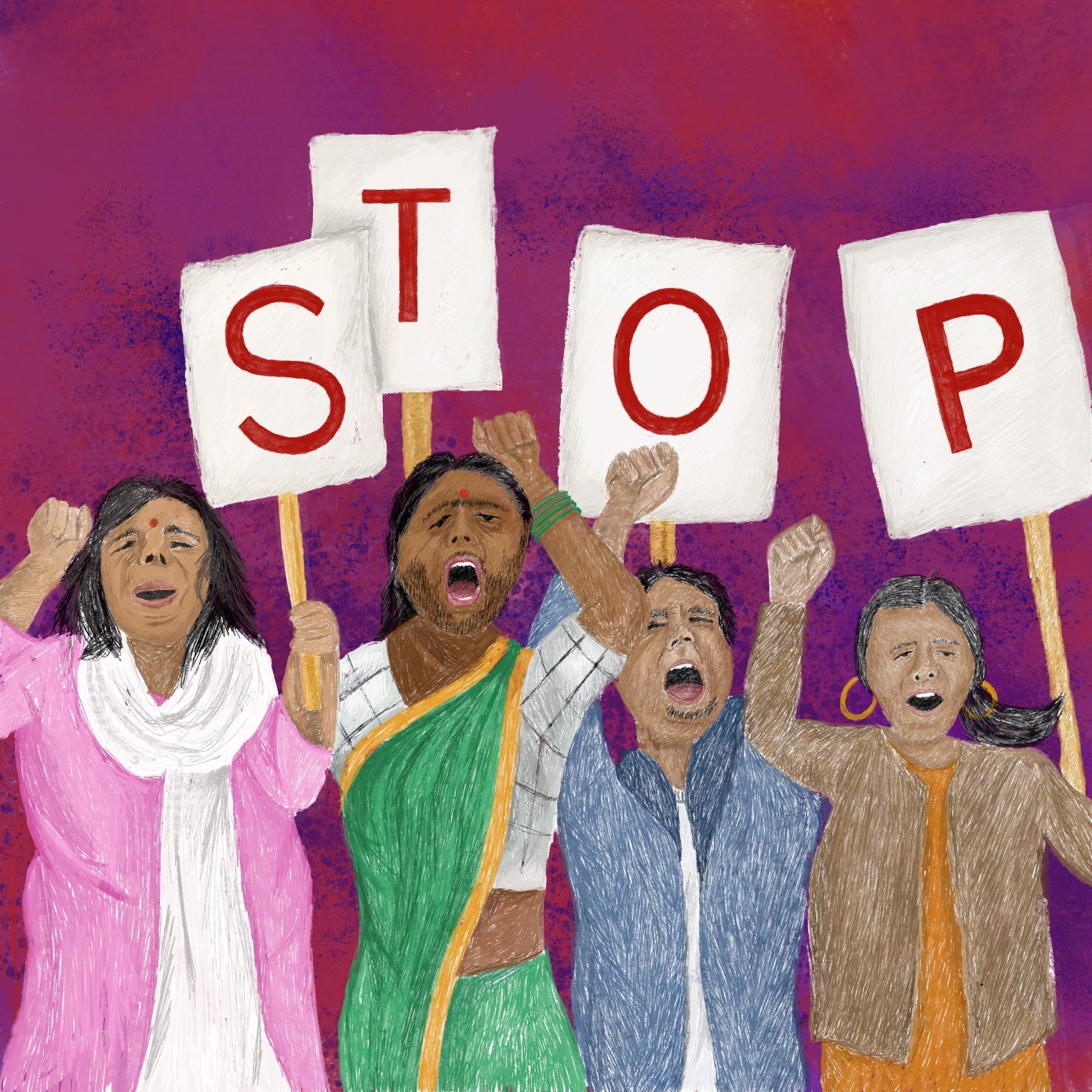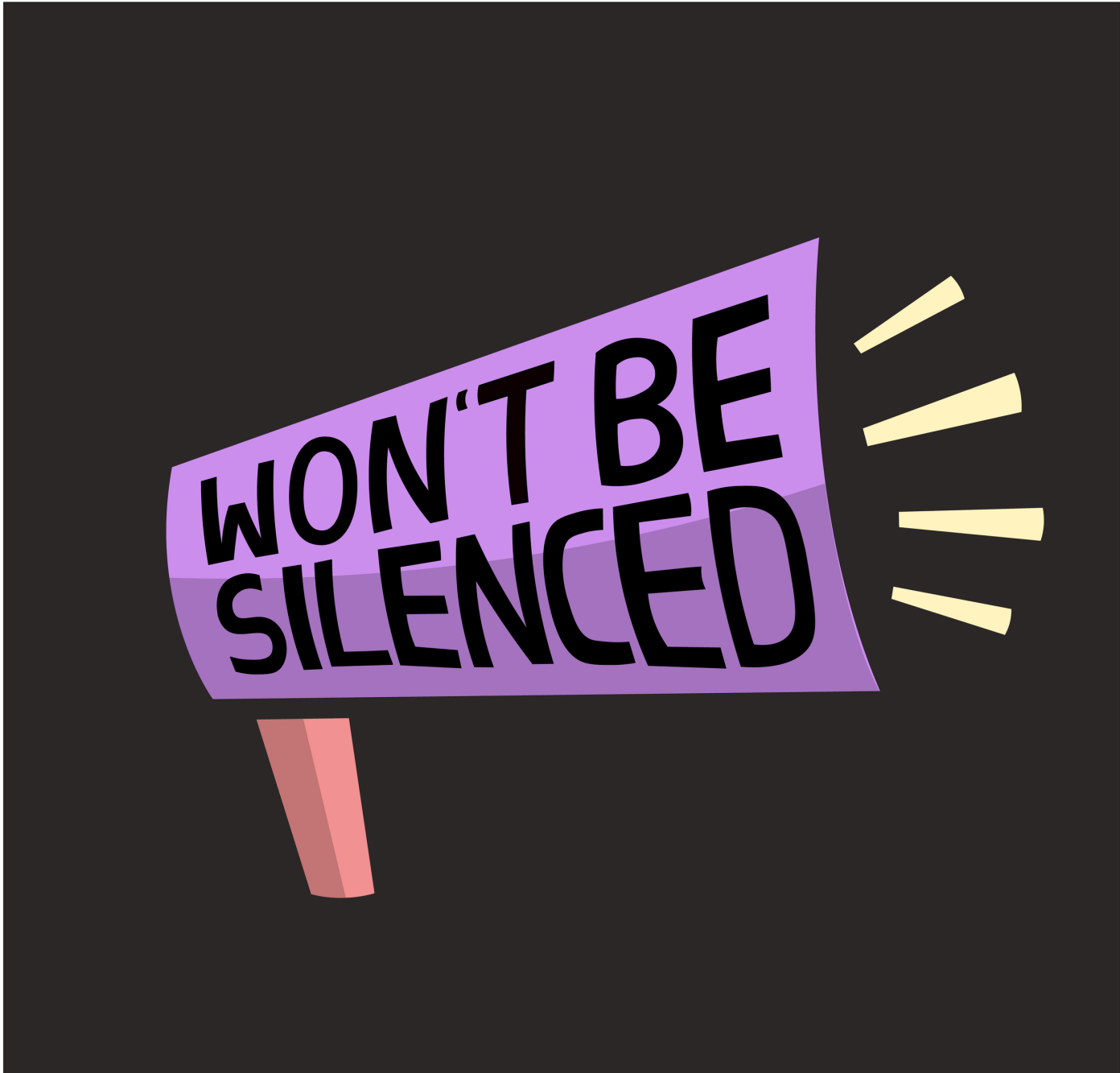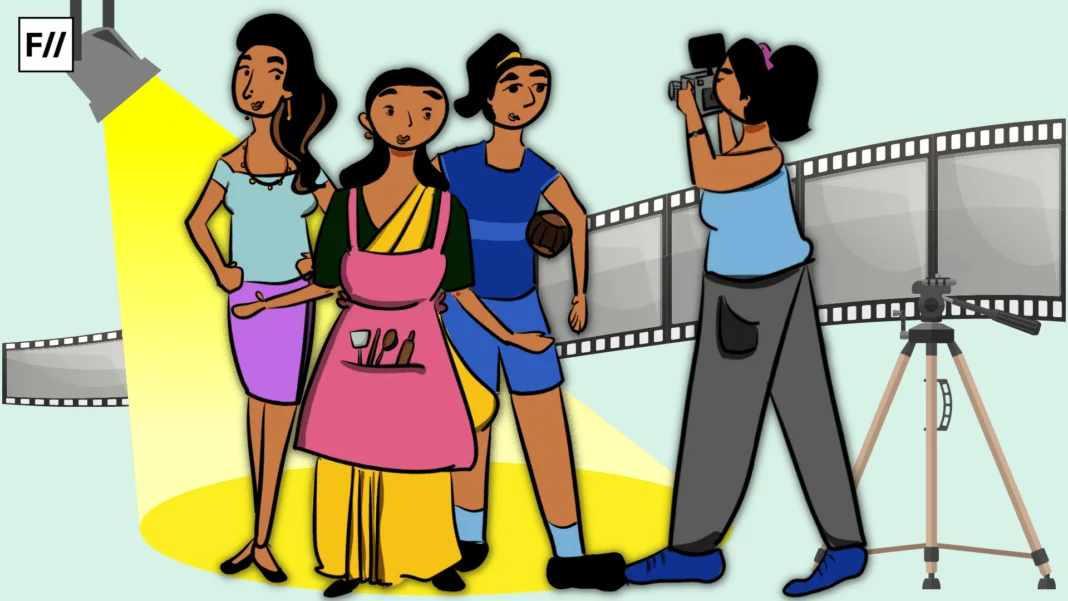Trigger Warning: Sexual abuse, rape
The fallout from the Justice Hema Committee Report in the Malayalam film industry has seen a potent human rights movement in the state with numerous actors coming forward to share their harrowing experiences of sexual misconduct and sexual violence in the state film industry. Many popular actors have been dethroned and exposed as alleged serial abusers of their female co-actors and colleagues in front of and behind the camera.
Many popular actors have been dethroned and exposed as alleged serial abusers of their female co-actors and colleagues in front of and behind the camera.
One question often heard in social media to discredit the women who have brought forth the charges is the seeming enigma, “Why did she go to his room?” “Why did she get in the car with him?” “Why did she work with him?” This seemingly logical question, however, betrays a deep-seated ignorance of the entrenched patriarchy in the film industry. Similar explosive allegations shook Hollywood in October 2017 with the sex abuse case against the powerful Hollywood mogul Harvey Weinstein.
More than 80 women accused Weinstein of inappropriate sexual conduct, including indecent exposure, sexual coercion, sexual massage and masturbation, sexual assault, and rape. Weinstein also routinely retaliated against actresses who did not submit to his advances. Weinstein was arrested, tried and convicted to 23 years in prison. There are lessons to be learned from the Weinstein case.
Harvey Weinstein: Hollywood denounces one of its own
The cleaning up of the Malayalam film industry appears to rest with the Kerala government, particularly, Chief Minister Pinarayi Vijayan. In sharp contrast, Hollywood denounced Harvey Weinstein on its own almost as soon as he was arrested. Two days after the NYT story was published, Weinstein’s own company fired him from its board of directors, and the Academy of Motion Picture Arts and Sciences that awards the Oscars expelled him.

Harvard University stripped Weinstein off the W. E. B. Du Bois medal they awarded him. The British Film institute withdrew the BFI Fellowship. The Producers Guild of America and the Television Academy banned Weinstein for life. The British Academy of Film and Television Arts (BAFTA) terminated Weinstein’s membership.
#MeToo in films: “do you really want to make me your enemy for five minutes of your time?”
Not only did Hollywood denounce Weinstein, but, in an act of poetic justice, Hollywood prosecuted itself in the post-Weinstein years by making films about its sordid history of sexual abuse. From documentaries to feature films, Hollywood attempted to redeem its fallen image with films that explicitly address sexual misconduct among its own. It was as if without exorcising the ghost of Weinstein, Hollywood could not go back to the business of filmmaking. The #MeToo in films attempt to answer the question on the tip of everyone’s tongue: “why did these women go with their abuser”?
In Ursula MacFarlane’s documentary Untouchable: The Rise and Fall of Harvey Weinstein (2019) nearly two dozen women and a handful of men testify about their interactions with Weinstein across forty years. The interviews make it clear that sexual predators start early. In the opening interview, Hope D’Amore, an early Weinstein associate, recounts her 1978 rape in a hotel room. D’Amore states that Weinstein got into her bed naked during a business trip.
When she tried to push him away – ‘he is huge,‘ she says in contrast to her petite form – he pushes her down with his body until she is completely immobile. ‘Do you really want to make me your enemy for five minutes of your time?‘ Weinstein asked her. ‘I said “no” and pushed him away,‘ D’Amore says, ‘more than once, and then I just stopped.’ D’Amore states that she was so frightened that she did not tell anyone about the rape because Weinstein had told her that he ‘owned the cops‘ in Buffalo, New York.
D’Amore states that she was so frightened that she did not tell anyone about the rape because Weinstein had told her that he ‘owned the cops‘ in Buffalo, New York.
Every interview shares aspects of D’Amore’s confusion. Women after women, actresses, junior artists, assistants, secretaries, recount how Weinstein invited them to his hotel room to discuss films. Why did they go? They went because it was well known that Weinstein worked from his hotel suite. Men and women went to Weinstein’s suite to discuss work. Women did not automatically assume that they were walking into a rape when they went to see Weinstein. With each woman, Weinstein would begin by discussing films, get them comfortable, and then do a 180 degree turn and attack her.

Women after women repeat Weinstein’s cajoling, followed by threats that were escalated to full-on assault. They describe how massive he was physically to them, how revolted they were by him, how many times they said “no” and tried to run for the nearest exit, but how relentless he was in blocking them. Weinstein raped women in New York, Los Angeles, London, Paris, Venice, at Cannes, at Sundance.
How many rapes are too many?: Weinstein, sexual assault and the film world
Harvey Weinstein owned Hollywood in the 1980s and 1990s. Weinstein’s studio Miramax produced Oscar winning films, the ultimate arbiter of industry success. Some of the biggest names in Hollywood owe their careers to Harvey Weinstein—Quentin Tarantino, Gwyneth Paltrow, Uma Thurman; it is a long and impressive list. Film professionals before and behind the camera got their career-making awards and acknowledgements from industry peers thanks to Harvey Weinstein.
All of them were complicit in looking the other way at the sexual abuse perpetrated by Weinstein for over four decades. After the story broke, several admitted that Weinstein had tried to assault them. All of them admitted that they had heard “rumors” or “gossip” about Weinstein doing such-and-such to some actress, but that they had not known about the scale or the pervasiveness of his conduct. Exactly how many women should Weinstein have raped before rape became a crime?
The human resources department protects the company and not the employees
The Assistant (2019) directed by the Australian filmmaker Kitty Green gives us an even closer look at the entirely apathetic Hollywood studio culture, a deadly combination of admiration, sycophancy, intimidation and fear, a culture of machine-like compliance and silence. Julia Garner plays Jane, an assistant at a production company, like Miramax, in New York City. This brilliant little film shows us clearly what happens if you should file a complaint against your boss for abuse of power or sexual misconduct.
The HR department is to protect the company, and not the employees.
Jane suspects that her boss has put up a young woman from Idaho in a New York city hotel to take advantage of her and goes to the company’s Human Resources office to file a complaint against her boss. ‘Have you seen the crime?‘ the HR director asks her. No, she says, but . . . The HR director stops her and chastises her for voicing a complaint when no crime has taken place. ‘Go back,’ he sends her back scolding and informs her boss who further reprimands her and demands an apology from her. The HR department is to protect the company, and not the employees.
The reckoning: reputations and fortunes come tumbling down
The entertainment industry was ready for a shake down following the Weinstein case. Established fortunes and reputations were revisited and many demolished during the reckoning. David Stenn’s Girl 27 (2007) about the 1937 rape of a junior artist and dancer Patricia Douglas by an MGM sales executive at an MGM exhibitors’ event resurfaced with renewed interest during the Weinstein trial. One of the first women to accuse a major Hollywood studio of sexual assault, Douglas was reviled as a “tart” and a “slut” at the trial. Her rapist was never convicted, and Douglas vanished from the film industry after the trial.

Julian Jarrod’s The Girl (2012) portrayed Alfred Hitchcock’s obsessive pursuit and harassment of Tippi Hedren, the star of The Birds (1963). Hedren’s rejection angered Hitchcock to such an extent that he refused to release her from his contract and temporarily stopped her career for two years. The documentary Leaving Neverland (2019) explored allegations of grooming and child sexual abuse at pop singer Michael Jackson’s Neverland ranch. Surviving R. Kelly (2019) covered the sex abuse allegations, arrest, trial and conviction of hip hop star R. Kelly.
It is time for the Malayalam filmmakers to address the sickness affecting their industry. It is time to step outside the fan associations and the political handshakes. For Malayalam film industry to move forward, the repressed history of sexual abuse must be brought to the screen in an act of aesthetic cleansing. In a small way that has already happened. Director Jayaraj’s Naayika (2011) makes a veiled reference to one of the first suicides of Malayalam cinema; the actress Vijayasree who took her own life at the age of 21.
In a paradoxical case of art imitating life, in this film written by Deedi Damodaran, a founding member of the Women in Cinema Collective (WCC), the film producer Stephen Muthalali who rapes the junior artist Vani, Vijayasree’s stand-in, is portrayed by the Malayalam actor Siddique against whom an FIR has now been registered for rape. In the film, Stephen Muthalali is arrested and brought to justice for Vani’s death. Will life imitate art?




